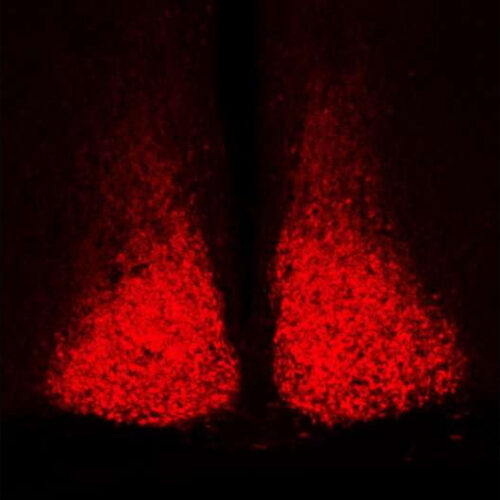by UT Southwestern Medical Center Microscopic image of the mouse suprachiasmatic nucleus, the brain region responsible for controlling circadian rhythms. Credit: UT Southwestern Medical Center A gene called Npas4, already known to play a key role in balancing excitatory and inhibitory inputs in brain cells, appears to also be a master timekeeper for the brain’s circadian...

